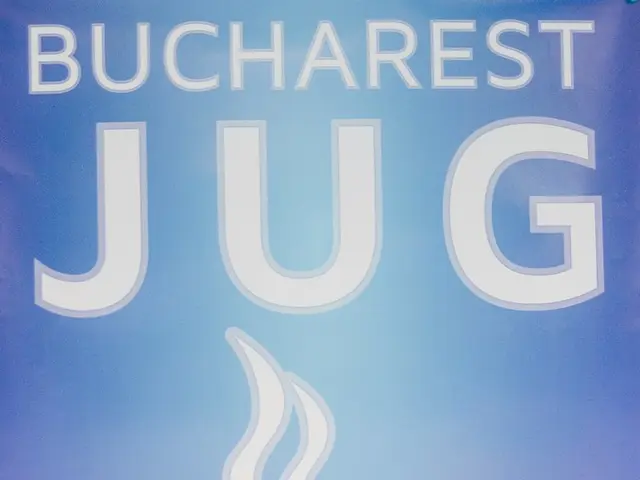Health aficionado Mясников places kefir, milk, and freshly squeezed juice on the unhealthy drink list
Life's a puzzle, ain't it? Ever felt like you're getting hoodwinked when you're just trying to quench your thirst? That bottle of "natural" juice or fancy energy drink promising health benefits might as well be hiding a dark secret!
Dr. Alexander Myasnikov, a man who's made a career out of seeing through marketing BS, decided to reveal the truth about popular drinks. Here's what he found and what you should actually be pouring in that glass:
Top 3 drinks that don't need a sales pitch:
- Green tea - this unsung hero is your selling point in your own body. The secret ingredient is catechins, which function like a super-powered cellular security guard, protecting your body from aging. Prepare it with water that's hot, but not boiling (imagine poaching a delicate egg!). Research indicates regular drinkers have stronger hearts and steadier blood sugar levels.
- Coffee - yeah, the same one that used to be public enemy number one. Natural black coffee, minus the caramel "cloud" syrups, houses chlorogenic acid - an antioxidant that could lower the risk of Parkinson's disease. But remember, moderation matters: 2-3 cups a day are like a dose of medicine, 5 cups is like playing Russian roulette with your nervous system.
- Water - it's not exciting, but it's reliable. Two liters a day isn't a legend, it's necessary. Try getting it down warm, in small sips: it's absorbed better that way. If it feels like going down a dry chute, add a squeeze of lemon or a sprig of mint.
So, what about the rest?
- Freshly squeezed juices are sugar bombs. A glass of OJ equals six teaspoons of sugar. Imagine eating them with a spoon - not so appetizing, is it?
- Diet soda fools your brain: "Sweet taste is there, but no energy? Eat more cookies!"
- Energy drinks are like credit cards: instant alertness now, but debt in the form of fatigue later.
A useful tip: take it slow. Start by replacing one habit: instead of a sugar-laced cappuccino, try a black coffee with a pinch of cinnamon. Or trade an evening soda for a cup of hibiscus tea with berries. After a week, your body will thank you with clearer thoughts and maybe even a couple of pounds shed.
The key takeaway is - don't believe the hype. Sometimes the healthiest things are those that don't brag about their benefits. As Meatloaf once said, "The best drink is the one your grandma would drink without instructions." The source adds that it's all about your body knowing what it needs.
Comparison:
Green Tea: Antioxidants like EGCG may help fight cancer, boost weight loss, and enhance heart health[1][3]. Contains caffeine for focus and relaxation [2]. High consumption may lead to caffeine overdose causing tremors, insomnia, and stomach upset[3][5]. Tannins can reduce iron absorption[5].
Coffee: Boosts energy and alertness, improves mental performance. May reduce risk of certain diseases like type 2 diabetes and Parkinson's[4]. High caffeine content can cause insomnia, anxiety, and increased heart rate. Excessive consumption may lead to dehydration.
Water: Essential for hydration and maintaining bodily functions. Aids in weight regulation and improves skin health.
Freshly Squeezed Juices: High in vitamins and antioxidants, supporting immune function. Often high in sugar (as much as six teaspoons per 8 oz serving), leading to weight gain and dental issues if not balanced with fiber. Lacks fiber compared to whole fruits.
Diet Soda: Zero calories and often seen as a low-calorie alternative to sugary drinks. Contains artificial sweeteners, which may lead to cravings for more sweet tastes. Linked to potential metabolic problems and tooth erosion.
Energy Drinks: Provides rapid energy boost due to caffeine and other stimulants. Can lead to caffeine toxicity, increased heart rate, and blood pressure. Often contains high levels of sugar and artificial ingredients.
Herbal Teas: Zero caffeine, rich in antioxidants, and can aid in relaxation and digestion.
Infused Water: Promotes hydration and can be flavored with fruits or herbs for taste without added sugars.
Whole Fruits: Provides essential fiber, vitamins, and minerals.
In summary, green tea and water are generally healthier options, while freshly squeezed juices can be beneficial when balanced with fiber intake. Herbal teas and infused water offer better alternatives to caffeinated or sugary drinks. Diet soda and energy drinks are less recommended due to potential health risks.
- An appealing choice for a healthier beverage could be green tea, as it is packed with antioxidants like EGCG, which may aid in cancer prevention, weight loss, and heart health.
- If seeking a caffeine boost and antioxidants, natural black coffee can be a good option, as it contains chlorogenic acid, shown to potentially lower the risk of Parkinson's disease.
- Water, though not exciting, remains a reliable choice for maintaining bodily functions and hydration, with a recommended daily intake of two liters.
- Be cautious about freshly squeezed juices, as they can be sugar bombs, providing as much as six teaspoons of sugar per serving, leading to weight gain and dental issues.
- Diet soda might seem like a low-calorie alternative to sugary drinks, but it contains artificial sweeteners that could potentially stimulate cravings for more sweet tastes and have links to metabolic problems and tooth erosion.







